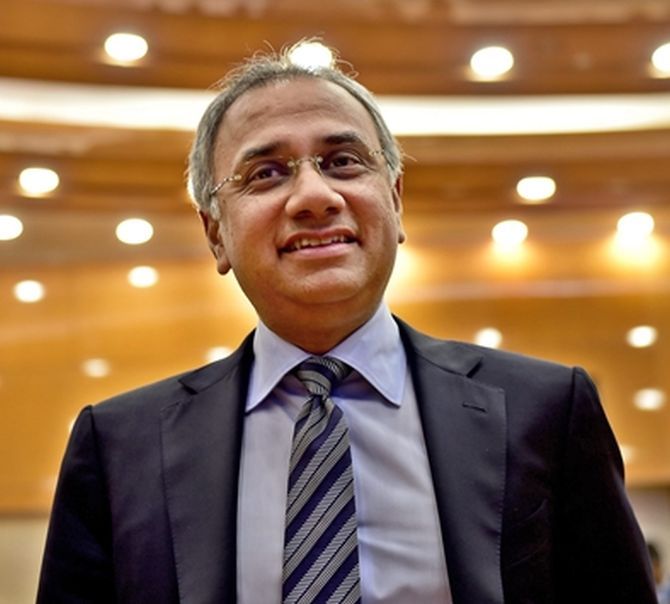Over the last years, taking the helm at Infosys has always had a strong resemblance with taking a roller-coaster ride

Salil Parekh has been at the helm at Infosys for a little over four months. And he is set on laying a strong foundation for growth instead of focusing on short-term gains.
Within these few months, Parekh has attempted and mostly succeeded in instilling a sense of confidence among employees, laying out the growth strategy and clearing the mess around two past acquisitions.
The most important achievement, perhaps, was winning the trust of the board and to a certain extent that of the co-founders or promoter group, which was seen lacking in the regime under Vishal Sikka.
“Undoing a past decision - to which some of the current board members were also party to - is by no means a small achievement,” a source who tracks Infosys closely said, indicating company’s decision to divest Panaya and Skava.
Such decisions can’t be taken without a strong backing of the board and the promoters, the source said, adding especially when there was so much controversy around these acquisitions and the move can unnerve many.
Over the last years, taking the helm at Infosys has always had a strong resemblance with taking a roller-coaster ride. Enthusiastic endorsements were often followed by challenging times, not least in having to deal with founders,” said Tom Reuner, managing partner, Business Operations Strategy and M&A Advisory at HfS Research.
“Against this background, Parekh’s understated start provides a cultural change.
"By emphasising services over products and by putting Panaya and Skava up for sale, Parekh has drawn a clear line in the sand right from the outset.
"However, all of this will only be remembered if the execution engine runs smoothly and effectively,” Reuner said.
Last week, while announcing its January-March quarter and 2017-18 financial numbers, Infosys unveiled its new four-pillar strategy.
The company announced it wanted to sell Panaya and Skava as the assets did not gel well under the new scheme of things.
Another important shift in the strategy was stating that the profit margins were expected to be in the range of 22-24 per cent in 2018-19 as the company had to invest back a lot of its profits into the business to keep it healthy and productive.
Infosys has always aspired to be a margin leader, especially until the time when the founders were at the helm in executive roles.
Even when Sikka joined as the first non-founder chief executive officer in 2014, he gave importance to maintaining profitable growth.
As part of Sikka’s vision 2020 plan for Infosys, the company wanted to maintain an operating margin of at least 25 per cent.
However, the business environment has changed vastly since the founders left the company in 2014.
While technology spending has tilted more towards the digital side, protectionist policies in the US under President Donald Trump have necessitated Indian IT players to step up their investments in the country.
Photograph: PTI Photo







 © 2025
© 2025